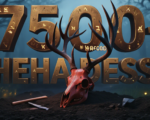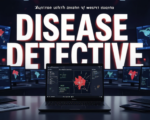A low hum of anxiety often surrounds the mention of mathematics. At Colorado Mesa University, that fear isn’t being ignored—it’s being dissected.
In a small but symbolic step, CMU hosted a screening of Counted Out, a documentary exploring how math—often unseen and misunderstood—shapes daily life. Behind the film? A growing initiative to rethink how math is taught, used, and perceived on campus and beyond.
A Fear Rooted in Experience, Not Numbers
Dr. Abe Wallin, Assistant Professor of Teacher Education at CMU, has been studying the disconnect between people and mathematics. It’s not just a matter of failing a high school algebra test. It’s deeper.
“A lot of people have a fear of math,” he says. “And I think it’s because of how we’ve defined that in the past.”
That “definition,” he explains, has traditionally boxed mathematics into rigid concepts—formulas, memorization, right and wrong. But that misses the broader point of what numbers actually do.
Wallin’s goal? To reframe the conversation around quantitative literacy—a more practical, flexible way of understanding the role numbers play in everything from politics to personal finance.

More Than Arithmetic: Defining Quantitative Literacy
Quantitative literacy isn’t about solving for x.
It’s about being able to look at a chart in a news article, understand the financial breakdown of a student loan offer, or question the statistical claim made by a political campaign.
Wallin explains it simply: “It’s being able to look at a table or a graph or listen to somebody explain their position and be able to follow that answer—and think about questions that they would have for that individual.”
This shift isn’t just theoretical. It’s being actively baked into how CMU engages students and the surrounding community.
Why Now? Why Here?
The event took place during Math Awareness and Financial Literacy Month—an intentional pairing.
In a climate where misinformation is rampant and financial decisions are increasingly complex, the ability to understand numbers is a form of empowerment. It affects how people vote, save, shop, and plan for their futures.
So why is Grand Junction a hub for this kind of change?
CMU sees itself not just as an academic institution, but as a community partner. Western Colorado has large populations of first-generation college students, rural families, and adult learners returning to school—many of whom carry that inherited fear of math.
And Wallin believes the university has a responsibility to break that cycle.
The Power of Storytelling: “Counted Out” and What It Sparked
The documentary Counted Out—while relatively low profile in the mainstream—serves as a conversation starter.
It doesn’t lecture. It shows.
Through stories from around the world, the film highlights the subtle ways math governs health care access, housing affordability, and even parenting. For many in the audience, it put a human face on what’s often seen as cold, intimidating logic.
“We thought the film would present a way to kick off an initiative,” Wallin said. “To look at how CMU can help our community increase quantitative literacy across many spectrums.”
So what’s next?
A Long Game: CMU’s Year-Long Strategy
Wallin describes the film screening as “phase one” of a larger effort. The university is gearing up for a full year of programming, outreach, and possibly curricular redesign to embed quantitative thinking more deeply into student life.
“There’s a lot we hear in the media about how people don’t understand mathematics,” he said. “CMU would like to move forward with some projects to increase that.”
While details remain under wraps, the plan is expected to involve:
-
Cross-disciplinary math integration (embedding numerical reasoning in non-STEM courses)
-
Community workshops and public math literacy events
-
Faculty training around inclusive math teaching
-
Collaborations with local schools to support early numeracy
At its core, the movement isn’t about test scores—it’s about shifting mindsets.
From Shame to Competence: Changing the Narrative
The fear of math, for many, is emotional before it’s intellectual. Adults carry memories of red-inked tests, confusing textbooks, and feeling left behind.
CMU’s initiative hopes to create space for something different.
A learning environment where it’s okay not to know, where math isn’t abstract punishment, but a usable, understandable part of life.
As Wallin sees it, “Mathematics and quantitative literacy are much more than what we’ve traditionally thought. It’s about participation in society.”














